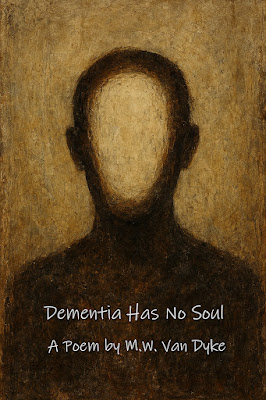Don’t Tell Me I Have an Easy Life
A caregiver’s truth, spoken out loud.
Don’t tell me I have an easy life because I “get to stay home.” I’m a family caregiver.
Don’t assume I spend my days watching TV. I don’t even get to watch what I like.
Without the pause button, I wouldn’t finish a single episode — nothing I watch is uninterrupted, and none of it is truly for me, even when I chose it myself.
Don’t confuse the calm you might see in my home with leisure.
That peace? I built that. I routine that. I maintain that so someone I love doesn’t unravel.
Come over at 3 a.m.
Come witness the hydration battles, the night terrors, the diaper changes, the screaming showers.
Come see what happens after the visitors leave — when “showtime” is over and the reality of dementia snaps back into place.
Don’t say I didn’t sacrifice.
Don’t say this life is easy.
Don’t tell me I haven’t lost more than most will ever understand.
Don’t tell me I should be dating.
Don’t ask why I haven’t “put myself out there.”
For some of us, love has faded under the weight of caretaking.
For others, it never had a chance to begin.
There’s no space for desire when every hour is rationed.
Not when my entire life is lived on call.
And even if I met someone and the interest was there…
I wouldn’t bring them home.
Not into this house.
Not into this... life.
When you childproof a home for dementia, you lose the casual ease most people take for granted.
When you downsize for safety and affordability — fewer stairs, smaller spaces — you lose more of your life than theirs.
And when something gets knocked over or broken, it’s almost always yours — not because it mattered less, but because you made space for them to matter more.
When you take the smaller bedroom so your LO can have room for medical supplies or EMS access, you feel that trade-off every single night.
Caregiving means your own life fades into the background.
You are lost in translation — of your identity, your routine, your worth.
And you are lost in transitioning — not just homes, but selves. Slowly. Permanently.
When your LO moves in with you, or you move in with them, the world shifts.
When you downsize again, it’s your things that go.
I know what it means to box up over 3,000 books — a lifetime of reading and identity — and donate them to the library because there was no space and no money for storage.
That hits deep. Still does.
Sure, there’s less to dust now.
But that doesn’t make it easier on the soul.
We give of ourselves, as family caregivers, in every way — both large and small.
In ways most won’t see. Can’t see.
Can’t understand or appreciate. It’s outside of their experience.
Our days… they are all a day of days.
Family caregivers will know what that means.
Afterword
I know this piece is heavier than what I usually share. There’s more I could say — but this felt like enough. It already weighs more than most people can see.
Sometimes we don’t have the words to express what caregiving really is.
So it has to be written down by someone else — someone who's living it too.
Not someone studying it.
Someone in it.
If you’re a caregiver, or love someone who is one, I hope this met you where you are.
And maybe helped you or them feel a little less unseen, and unheard.
















